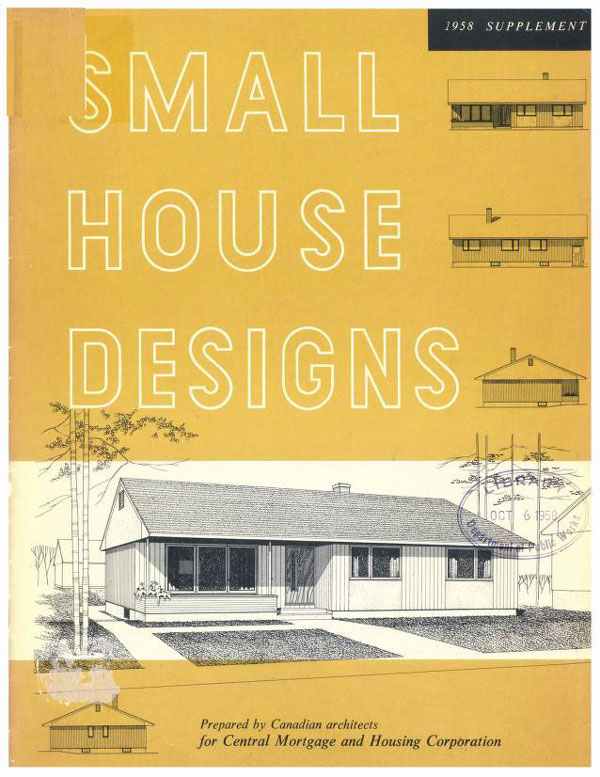This past month, consultations to create a national catalogue of pre-approved home designs were to begin between the Ministry of Housing, Infrastructure and Communities and “partners and stakeholders across the housing sector.”
“This new initiative will help accelerate the delivery of homes by standardizing housing designs, starting with low-rise construction,” the federal government said late last year. “It will explore a potential catalogue to support higher density construction, such as mid-rise buildings, and different forms of housing construction, such as modular and prefabricated homes.”
This could provide an important boost towards the building of the 3.5 million new homes estimated to be needed across the country by 2030.
A federal housing catalogue of pre-approved designs sounds great. What could possibly go wrong?
A mix of hopeful optimism and concern has been expressed following the announcement.

First is the ambitious timetable, given this is a federal government project. When recently asked by the Daily Commercial News about the timeline and consultation participants, a ministry spokesperson said that details concerning who would play a role in the consultations had not been confirmed. As for timing, “Our goal is make our findings available later in 2024.”
Optimistically, this catalogue of home designs could raise the bar significantly for Canadian housing and make high quality, climate resilient, energy-efficient homes part of a new normal for millions.
“Public sector leadership in such programs is an important element of broader market transformation,” one industry observer told the Daily Commercial News. “We know highly ambitious outcomes can be delivered affordably. Industry leaders around the world are doing so today.”
However, the ministry has not been clear as to what level of the National Building Code would be incorporated into any pre-approved designs.
“The final approach may incorporate a variety of designs for different levels of building performance. Criteria will include not only requirements under the National Building Code, but also accessibility, buildability, and multiple other factors.”
This lack of specificity means the consultations should be carefully monitored and reported in order to ensure the best of all possible outcomes.
“The proposed design catalogue has the potential to be transformational, but only if the building energy and emissions performance of the proposed designs align with Canada’s net-zero climate commitments,” Kevin Lockhart, research manager at Efficiency Canada, told the Daily Commercial News.
“The proposed catalogue can galvanize demand for high performance components, which when shared between designs, can help to aggregate demand and make them accessible to the broader market, as well as spur construction innovations, for example off-site construction and panelization.”
In fact, it would seem obvious various forms of modular construction would help meet the demand for more housing, as a new report from the CSA Public Policy Centre suggests.
Chris Hill, co-founder of Vancouver-based offsite builder and construction management firm Bcollective, is convinced prefabrication and repeatability is the logical solution to the country’s housing shortage. He and a partner have gone further, and are currently developing an open source tool for designers and builders called, ironically, Catalog.
“Catalog is a social Enterprise that connects the diverse range of experts in housing development dedicated to implementing modern methods of construction, MMC, and streamlining the development of repeatable pre-approved housing projects.”
“We have inadvertently overcomplicated housing,” Hill told the Daily Commercial News in a recent interview. “The acquisition of land, or even the tenure of land, and how we create a building and design it through the permit build process is a really over-complicated set of rules.”
Change is inevitable in a country like Canada, Hill explained. Climate, geography, material availability and inconsistent regulations across different levels of government mean even standardised and repeatable designs need modification. The purpose of his Catalog tool is to make it easier for industry players to adapt designs.
The CSA report agrees with Hill’s point regarding the regulatory environment in Canada when it comes to prefabrication.
“We need our policies and regulations to keep pace in order to unleash its full potential,” says Tom Hardiman, executive director of the Modular Building Institute. “We need enabling building codes, efficient approvals, and governments that know how to procure and finance modular projects to reap maximum benefits.”
When it comes to his best hopes and worst fears regarding the proposed federal housing design catalogue, Hill is clear.
“The best hope would be that it starts to solidify and give a pathway for future prefabrication and a common design that’s accepted and meets a high bar in terms of repeatability. My worst fear is that we amplify low quality, damaging housing in order to make it easier and faster to build new homes across the country simply because we are in a rush.”
These are early days for the federal initiative, but many eyes are on how the consultations progress over the next few months.
John Bleasby is a Coldwater, Ont.-based freelance writer. Send comments and Climate and Construction column ideas to editor@dailycommercialnews.com.











Recent Comments
comments for this post are closed